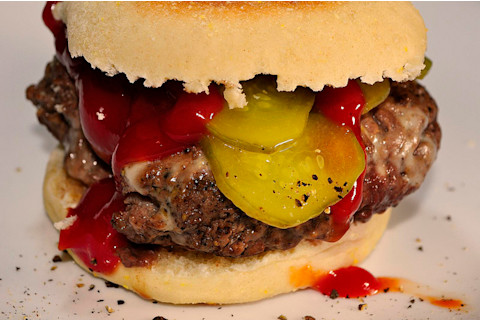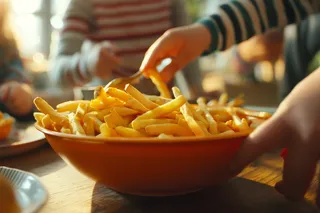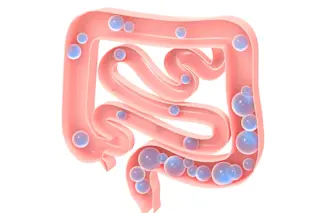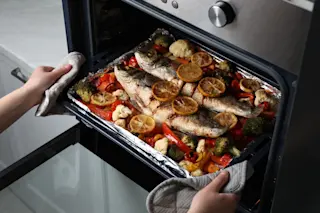
What’s the News: Fitting in is a perennial problem for almost everybody, especially immigrants and their children (for more, see The Joy Luck Club
). And anxiety about food is definitely part of it: when your friends think your mom’s home cooking is weird, well, maybe you’ll just pretend you don’t like it either. In fact, maybe you’ll eat more French fries and pizza than is entirely healthy to fit in, something that might explain why newly arrived immigrants balloon to the rest of the U.S. population’s levels of obesity in just 15 years. In a study designed to see how being perceived as un-American changed peoples’ food choices, scientists behaved badly and then brought out the menus. How the Heck:
“Do you speak English?” scientists asked half of the participants, who were Asian-American and white college students, in order to make them feel self-conscious about their status as Americans. (This question provokes what psychologists call "stereotype threat.") They then asked them all to write down their favorite food. Asian-Americans who’d been asked if they spoke English were three times as likely to write down American foods like hamburgers or pizza as those who hadn’t been. White students wrote down the same kinds of foods either way.
But did people actually change their eating habits to seem more American? To test this, in separate experiment researchers told Asian-American students to order whatever they liked from local Asian and American restaurants. But they dropped a bomb on some: “Actually, you have to be an American to be in this study.”
The subjects who had their American identities threatened indeed ordered and ate dishes that were more classically American—hamburgers, grilled cheese sandwiches, BLTs, mac and cheese—than those who hadn’t. (And in case you were wondering, the researchers had a separate group of Asian Americans and white people classify how “American” or “Asian” certain foods are—so when they say hamburgers are American, there’s real science behind it.)
When researchers tallied up the calories each group ate, Asian-Americans who’d been threatened had eaten a whopping 182 calories, 12 grams of fat, and 7 grams of saturated fat more than those who hadn’t been threatened.
This lends credence to the idea that anxiety about fitting in leads immigrants and their children to eat more calories and thus, unfortunately, develop the same health problems as the rest of the American population.
The Future Holds: A readjustment of what people think “American” food really is, the researchers hope. Ironically, they point out, the white students, who embodied the prototypical American identity the others were aiming for, didn’t eat nearly as much American food as Asian-Americans who felt threatened. “Hopefully, such efforts will become less necessary,” the researchers write, “as U.S. society broadens its definition of what is considered American food and who is considered American—so that Asian Americans eating sushi or kimchi will one day raise no more suspicion that they are foreign than do white Americans eating hamburgers and French fries.” Reference: Guendelman, M., Cheryan, S. & Monin, B. Fitting in but getting fat: Identity threat as an explanation for dietary decline among U.S. immigrant groups. Psychological Science
, June issue. Image credit: jeffreyw/flickr













